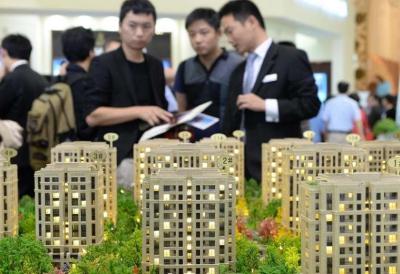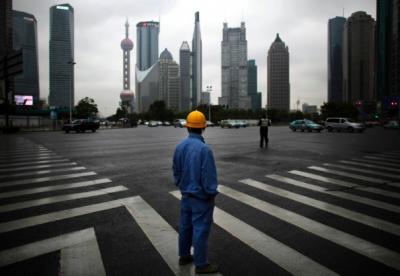Housing Issues for Average Chinese
Chinese mindset towards home
Traditional China was an agrarian society, which made the people of the country have a special attachment to land and family. Ancient people live on the farming land and cooperation of family members. The concept of ‘home’ means much more than a place to stay, but it is also the ties with the nature, relatives, fellow villagers, and the sense of belonging. Historically, many educated people went to the capital or other places to serve as officials. When they were old and weak, they had to apply for the resignation from his post and return to his homeland for the rest of their lives. Even someone who unfortunately fell ill and died far away from home would ask/pay others (usually fellow villager) beforehand to transport his body back to his hometown for the burial in the family cemetery. A Chinese idiom describes the phenomena: falling leaves settle on their roots. So we can see how important the home is to Chinese people.
Therefore, in every Chinese mindset, to own a house/apartment to make it home is the dream of all Chinese. Also for the average Chinese, once you own a place to stay, then you feel secure in some way, especially when you get older. No one can force you to move out.

In China, when ordinary people have a house or an apartment, which is considered to own a home at a specific place. With the life haven, it will definitely bring them the feeling of certainty and security. This kind of home feeling fascinates Chinese people, or even makes them remain intoxicated in it. Since currently there is basically no holding cost for properties in China, which means that as long as you buy the house, the house will always be yours. Although there is a 70-year property right issue, it is naturally ignored by the majority. In the eyes of Chinese peopl00e, the property is not merely a home, but a wealth that can be passed on to next generation.
In the West, the sense of security doesn’t necessarily come from owning a property, which is more like any other consumer goods. What is more, property owners are required to pay the taxes and fees every year. The property can be regarded as one type of assets like stocks or cash. While in China, without the inheritance taxes, the most valuable asset that can be passed on is usually the property.
According to the HSBC survey in 2017, 70% of China’s millennials (aged 19-36) are already proud property owners, putting China well ahead of the US (35%), UK (31%), and France (41%) in the home ownership rankings.
Related: Chinese Views on Marriage
Craze on investment of properties
In 1998, the central government issued the "Notice on Further Deepening the Reform of the Urban Housing System and Accelerating Housing Construction", announcing the com.0plete termination of welfare housing allocation. At the same time, the monetization of housing distribution was officially launched. This started the era of residential commercialization, which also became a milestone of great change of Chinese people’s life. At that time, China’s urbanization rate was only 30%, and rural income was less than 1/3 of that of the city. The housing reform in 1998 was an important turning point in the process of China’s real estate marketization. Since this year, China’s urbanization has entered a track of rapid development, which has also led to quickly-rising property prices. Soon after that, real estate became a popular channel for Chinese investors to cash in on macro trends.
In the following years, China’s real estate industry was turned into an engine that has not only laid down foundations for the country’s phenomenal growth, but also created so much wealth that property now accounts for 70% of China’s household wealth. Real estate industry has generated a large number of billionaires in China, with the fastest wealth creation in history.

During the period 2000-2016, from first-tier cities to those fourth-tier ones, you could see the construction sites at every corner of the cities with countless tower cranes erecting at the same time. Great progress has been made in this country as the per capita living space in China increased dramatically from 7.8 square meters to 40 square meters in 2017.
Undoubtedly real estate development has brought a lot of wealth to Chinese society, and the living condition has been well improved in the past decades. While on the other hand, the fast growing industry also made some negative impacts:
1.The housing prices rose considerably in a short period, much faster than personal income increase. The fast increase of property rates has put deep pressure on average property buyers. Excessive speculations in real estate resulted in unfair income distribution. The gap between the rich and the poor in society has been further widened, which makes an adverse impact on social harmony and stability of the society.
2.The current real estate market has gradually undergone overdevelopment in many third or fourth-tier cities. Of course, this surplus does not only mean that the supply of houses has exceeded the demand, but also the surplus in other industries, such as cement, steel bars for constructions, and other building materials, which may cause a waste of resources.
3.Overheating of real estate market has caused high costs to the real economy, which could also become an increasing risk for the domestic banking system. The resulting series of problems have hurt the sustainable development of the country.
Ridiculously expensive housing
Many people believe that housing prices have risen to the unaffordable heights, especially in some big cities. Raise Beijing as an example, in 2007, the average second-hand housing price is 14,000 Yuan (US$2150) per square meter, while in 2020, the number is 61000 Yuan (US$9385). This is a stunning increase by nearly 3.4 times. Larger down payments are being required, and mortgage interest rates are going up, making buying a home seem more and more like a far off dream for the average Chinese people.
Younger generation complains that it is very difficult for them to buy a property in the urban areas of those mega cities. Usually a 3-bedroom apartment will cost more than whatever they are going to earn for the rest of their lives. In Shanghai, the overall average price in 2019 was about 48,000 Yuan per square meter (US$7385). In fact, the core areas at city downtown of Beijing and Shanghai usually offer the most expensive properties in this country, usually 100,000 – 300,000 Yuan (US$15,300 – 46,200) per square meter. In China, those properties in a prominent school district can sell at a shocking rate, regardless of its poor condition and small size.
According to Shanghai E-House Research Institute's report, they monitored the average transaction price of marketable housing in 50 large and medium-sized cities across the country, the per capita housing area of urban residents, and the per capita disposable income of urban residents. The study concluded that the average price-to-income ratio of 50 typical cities nationwide in 2020 was 13.4, in other words, based on the housing price and yearly income in 2020, the entire income of a family in 13 years can be used to purchase a commercial apartment. But the ratios varied greatly in different cities. Like Shenzhen (neighboring Hong Kong), the top one on the list is astonishing 39.8, while the last one - Changsha (capital of Hunan Province), only 6.2.
Solutions for future

With the rapid rise of housing prices, it is getting more and more difficult for younger generations to buy a house/apartment for marriage, and the willingness to give birth declines, which affects population growth. For those who bought an apartment, they are also burdened with high mortgages, causing them feel more anxious. Even though the two-child and three-child policy were issued in 2015 and 2021 respectively, we can’t see any obvious change to the declining trend of fertility rate in this country. Certainly it is not fair to consider the high property cost as the only contributing factor to the social problem. Today, late marriages and late childbirth are more common in urban areas, so the Chinese government must curb the fast increase in housing prices to lower the living cost of average Chinese people.
The red-hot domestic property market has led to the Chinese government regularly bringing in restrictions and control on domestic real estate, especially in recent years. Just like the famous dictum from President Xi Jingping, ‘Houses are for living in, not for speculation’, the central and local governments launched a new-round real estate regulation in 2021. These measures were not designed for cutting the property prices drastically, but making the market stable and healthy. According to the latest remark of Premier Li Keqiang, the nation will increase the supply of subsidized rental properties and “shared-ownership housing” - homes that are co-owned by individuals and the state.
It is estimated that over 200 million people in China are now renting their homes. In the past few years, a wave of policies were unleashed to promote building more rental properties and to provide incentives, such as tax breaks, for property owners who rent out their unused homes as well as renters themselves. Tech giants like Alibaba and Tencent began to make big investments in the rental sector, as are major real estate developers like Evergrand, Vanke, and Country Garden. Apartment booking apps are also popping up and attracting large amounts of investment. All these will help to build up a healthy and convenient market for house renters.
Under the current situation, some young people began to change their attitude towards marriage, and got more flexible and pragmatic. ‘Naked marriage’ gradually appeared among those living in big cities. This type of marriage in China refers to a couple getting married without owning an apartment or car. If owning a house before marriage is no longer a necessity, then it will remove the pressure to some extent on demand side. Therefore, the real estate prices won’t have an irrational rise all over the country.
Further reading: